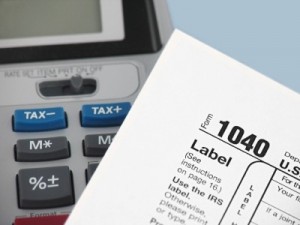
A Chapter 13 “adjustment of debts” bankruptcy will allow you to pay off past-due income taxes over a three-to-five year period, frequently without incurring any additional interest or penalties, and often enabling you to pay less of the tax itself.
Chapter 13 Gives You Lots of Power
Consumers file a Chapter 13 case instead of a “straight bankruptcy” Chapter 7 one for many reasons. If you owe a lot of income taxes, the significant advantages that it gives you over Chapter 7 would likely be reason enough. To be clear, Chapter 7 CAN discharge (write off) income taxes that are old enough and meet a number of conditions. But especially if you owe taxes for more than one tax year and/or for recent tax years, Chapter 13 could well be your best option. Under Chapter 7 you are at the mercy of the IRS after the case is over in dealing with any income tax debts that are not discharged. Chapter 13 gives you some extremely helpful tools for getting control over those tax debts, while continuously protecting you from the IRS.
Ongoing Protection Againts the IRS
From the moment your Chapter 13 case is filed, you and your assets are protected from the IRS’s collection efforts, up until the time you are tax debt-free. The “automatic stay” which stops all your creditors from pursuing you applies just as powerfully against the IRS (and all other tax authorities). And although this protection is in place in Chapter 7 cases as well, there it only lasts about three or four months, and expires generally before you even start dealing with the IRS about the debts that were not discharged. In Chapter 13 that protection lasts throughout the three-to-five year case. That’s huge: throughout that time no threat of garnishment of your paychecks and bank accounts, no tax levies on your assets, no tax liens recorded on your home or vehicles, no phone calls from the IRS.
Advantages Under Chapter 13
Chapter 13 can handle all of your income tax debts, along with all your other debts, in one tidy package.
For bankruptcy purposes you can generally have three kinds of income taxes, depending on their age and other considerations.
There are those taxes that are old enough and meet some other conditions so that they would be discharged in a Chapter 7 case. Under Chapter 13 these are lumped in with all your other “general unsecured” creditors—credit cards, medical debts, and such—and only paid to the extent that you have available money to do so during the course of your case. Often that’s not very much because of other more important debts that must be paid ahead of the “general unsecured” debts.
The newer, nondischargeable taxes are “priority” debts, meaning that the tax itself has to be paid in full during your Chapter 13 case. BUT usually interest and penalties stop accruing throughout the payment period, which alone could potentially save you thousands of dollars. Plus the penalties that accrued before filing the case are usually treated as “general unsecured” debt, and therefore only paid to the extent there’s extra money to pay it.
You might also have a third category of income tax, IF the IRS recorded a tax lien. Then whatever you own that the lien attached to in effect becomes security on that tax debt. Chapter 13 often handles these much better than otherwise, because, first, the IRS can’t exercise its lien rights by foreclosing on and seizing your assets. And second, Chapter 13 provides a great mechanism for valuing that lien and paying it off so that it must be released at the completion of your case. If there is no equity in the assets—such as a home in which the mortgage balance(s) is(are) more than the value of the home—it’s possible that little or nothing has to be paid on the tax before the tax lien is released.
The bottom line is that at the end of a successful Chapter 13 case you would owe nothing to the IRS or any other tax authority, and usually nothing to anybody else either.
If the prospect of being tax debt-free and debt-free altogether is appealing to you and you live in the Dallas-Fort Worth area call me so we can meet to find out how Chapter 13 can help with your taxes. My name is Carrie Weir, and I’m a Texas bankruptcy attorney serving the Metroplex, especially the area around Rockwall, Heath, Greenville, Lavon, Wylie, Mesquite, and Rowlett. Please get in touch with me for a free and confidential consultation so that you can make informed choices about your taxes and the rest of your finances. Call 972-772-3083 or use the contact form here. Thank you. Looking forward to serving you.








Speak Your Mind